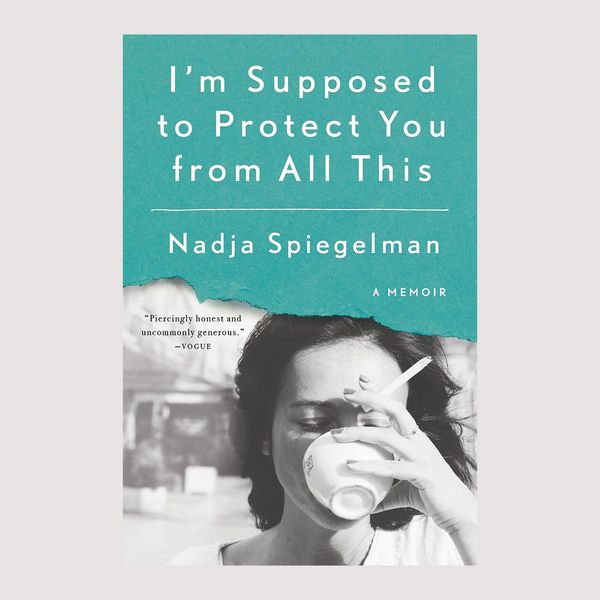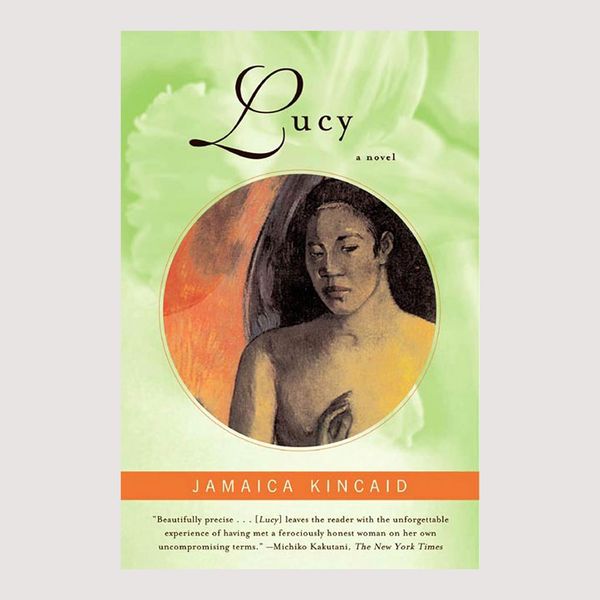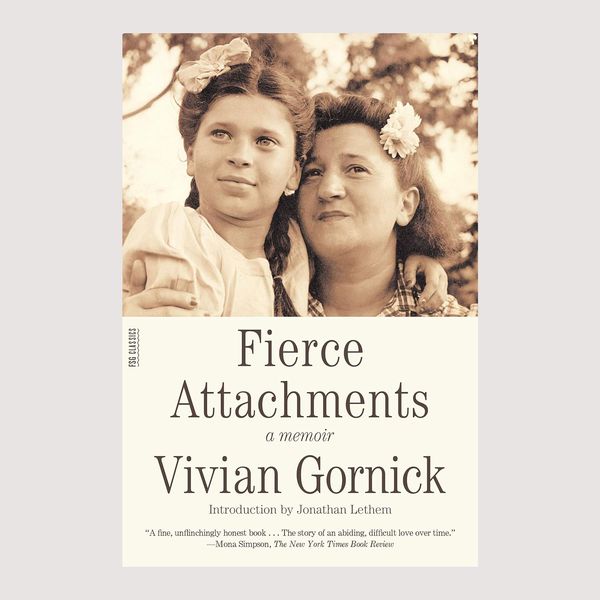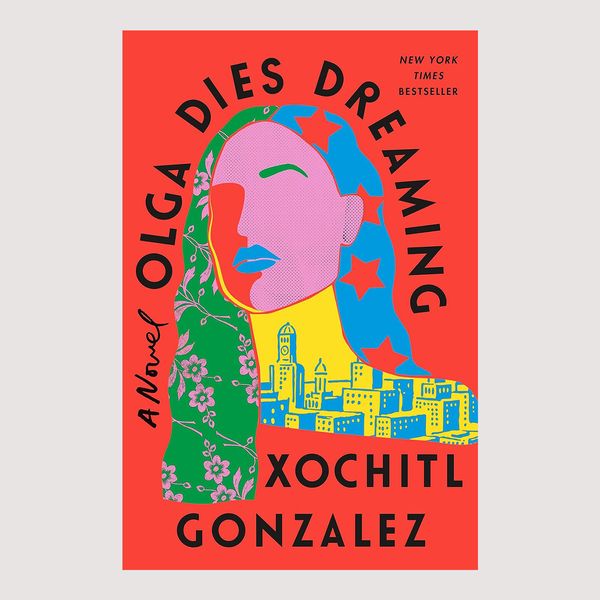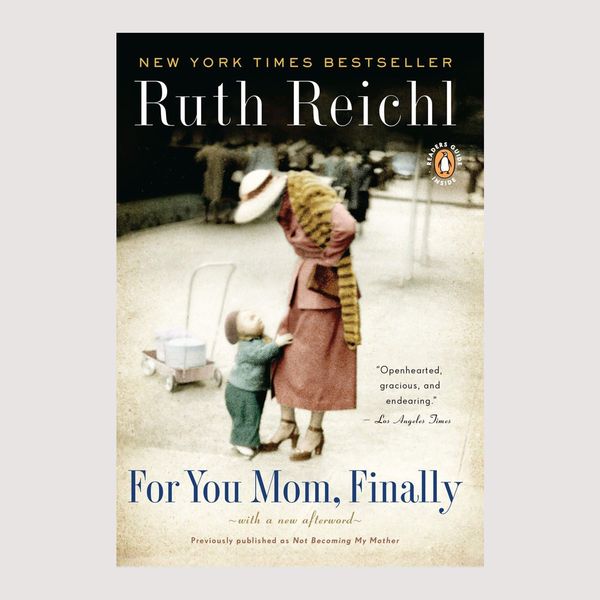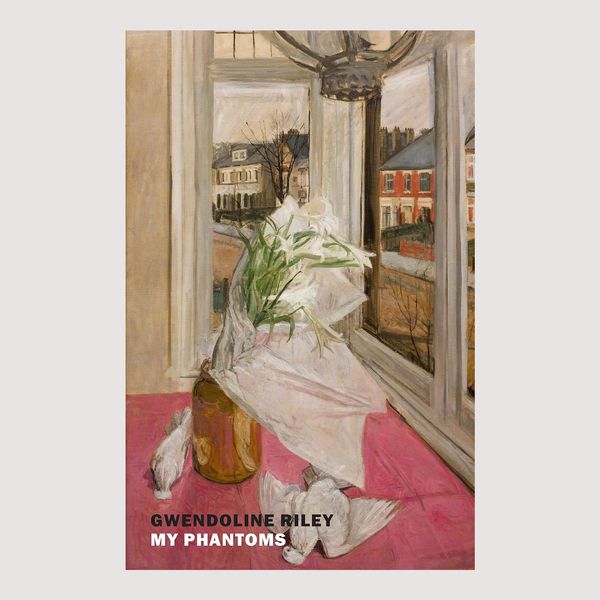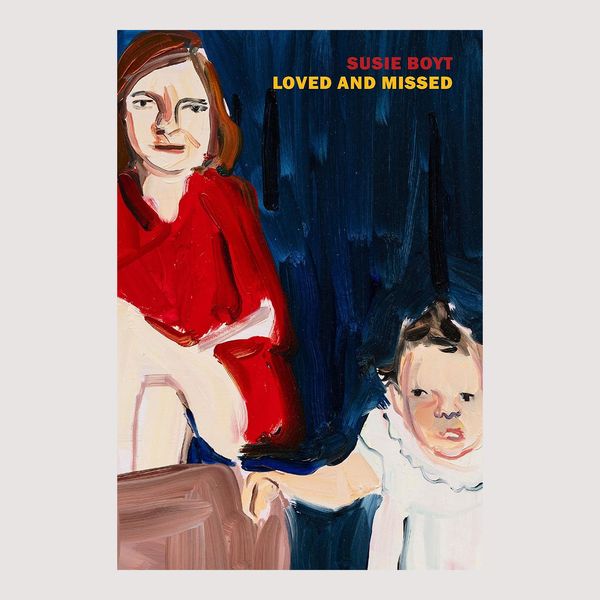
Having a mother is an almost universal predicament, and it isn’t always pretty. Looking to slice through the commercial pabulum and laudatory Instagram posts surrounding Mother’s Day with the sharp knife of literature? Look no further than this list of truly great books — some memoirs, some novels — that capture the mother-daughter relationship in all its nuance. From personality clashes with deeply eccentric mothers all the way to the truly deranged Mommie Dearest types, these books present a cornucopia of antidotes to the flowers-and-candy sentiments that surround us.
Growing up with art-world-famous parents — Maus author Art Spiegelman and New Yorker art director Françoise Mouly — wasn’t easy for Spiegelman, but her relationship with her French grandmother, Mouly’s mother, Josée, was always a bright spot. Mouly herself, however, had a tempestuous relationship with Josée — so much so that she moved to America in part to escape her. In her 20s, Spiegelman decided to investigate her mother and grandmother’s relationship, traveling to Paris to spend time interviewing Josée about her memories of Mouly’s youth. In their conflicts, Spiegelman finds echoes of her own memories of being raised by a bossy, alternately cruel and fiercely protective mother. In the course of her research, boundaries crumble and two alternate histories of the family emerge, each equally valid. Spiegelman explodes the taboo around openly discussing the enormous power of beauty, writing movingly about how difficult it was for her, as an awkward, heavy teenager, to have a mother so thin and beautiful she once posed for Vogue. A repeated motif echoes the title: The maternal impulse to protect one’s child — from the world, from difficult truths — is forever at odds with honesty, and honesty is what makes relationships real. It feels unprecedented to read a memoir by someone whose mother is still alive who is able to be this unsparing in her description of their relationship, not to mention a mother who actively participated in a memoir that paints her so unstintingly. —E.G.
In this story of a young woman who leaves behind her life (and her controlling mother) in the West Indies to work as an au pair for a rich white family in the States, Lucy ignores her mother’s letters and tries to forge a life different from hers. While her mother stayed anchored to a husband who cheated on her nonstop, Lucy craves independence and rootlessness, seeking out the quick pleasures of sex without the messiness of attachment. But even in solitude, she finds that her mother’s voice — angry, admonishing, painfully loving — lives inside her head like a roommate she just can’t cut loose. When Lucy finally severs all contact with her mother, she’s no longer sure if she really ever wanted to. Beautifully written and short enough to read before you and your mom fight at brunch. —Bindu Bansinath
Growing up in a Bronx tenement, Gornick was alternately smothered and cowed by her theatrically emotional mother, who tried to crawl into her father’s coffin at his funeral and mourned like a Victorian for a year afterward, caterwauling at night and forcing Gornick to sleep in her bed. This relationship forever defined what the author would expect and want from intimate relationships. Gornick narrates vignettes from the past from the perspective of the present as she and her now-elderly mother roam the streets of Manhattan on endless walks. The city really is, as the cliché goes, a character in this memoir; Gornick describes her childhood apartment building, its sights and sounds and smells and cast of characters, in sensuous detail. She and her mother are constitutionally incompatible because Gornick has achieved an intellectual life outside the limited world of her childhood and her mother remains trapped there despite her innate brightness. It’s a heartbreaking relationship, but it’s paradoxically pleasurable to read about thanks to Gornick’s immersive, mesmerizing prose. —E.G.
Blanca, the titular protagonist’s mother, is arguably a great mom. She loves passionately and all-consumingly, selflessly dedicating her entire life to passing down a better world, a better future. It’s just that she doesn’t do that for her kids. The island of Puerto Rico is Blanca’s offspring, and any maternal instinct she has is focused squarely on her fight for Puerto Rican liberation from the colonizing rule of the United States. Along the way, she sacrifices any relationship with her own children, leaving them behind and reaching out only to recruit them to her cause or criticize them when they refuse. —Jen Ortiz
Fans of Reichl’s previous memoirs — accounts of luscious restaurant meals, romance, and family life that go down smoothly — weren’t universally thrilled when they picked up this short book. They didn’t get the descriptions of wines and soufflés they were expecting. Instead, they got a stark, painful portrayal of Reichl’s mother. Miriam (Mim, for short) shaped Reichl as a food critic but not in the way you may think; Reichl had to become highly attuned to flavor because the meals her mother served were sometimes literally inedible. A would-be doctor shunted into the role of homemaker, Mim chafed at her responsibilities in the kitchen, and this manifested in a devil-may-care attitude toward food safety. She once served young Reichl’s Brownie troop chocolate pudding with an inch of mold scraped off the top of the bowl. At a later point in the book, Mim poisons guests so badly via under-refrigeration that some of them have to go to the hospital. As you would expect, other things about her were poisonous besides her cooking, which in previous books Reichl has transmuted into funny anecdotes. In this book, though, she peers beneath the surface of her mother’s legacy with the help of a recently discovered trove of notebooks and papers that help explain her mother’s lifelong struggles with mental illness and thwarted ambition. It’s a brave portrait of a complex woman who deserved more than she got, even though she shouldn’t have been allowed within 100 feet of a kitchen. —E.G.
Bridget and her mother, Helen, are diametrically opposed almost from Bridget’s birth, but both of them strive toward a genuine emotional connection that neither ever really feels. Helen — Hen, for short — is an unbelievably irritating human being, which Riley evokes masterfully through dialogue so realistic it feels transcribed rather than written. It’s hard to describe exactly what’s so wrong with Hen, but Riley evokes it in detail and at one point sums it up in a nutshell: “She was mulish, when she wasn’t completely biddable, and each mode always at precisely the wrong time. Like a mime’s recalcitrant prop: the door that wouldn’t give until it did and sent you sprawling.” Bridget tries for years to do the bare minimum of what her mother requires — to be “normal” for her mother’s sake, even when it means sacrificing her own sanity and well-being to maintain appearances. As her mother ages, it becomes harder and harder to keep her at bay, and finally their roles, never stable, are fully reversed when Bridget is forced to parent her mother despite having never been parented herself. This book is depressing as hell but impossible to turn away from. The reader is left grateful to be rid of Hen as a character but is haunted by her impossible relationship with Bridget — so full of strife but so heartbreaking. They never stop trying. —E.G.
One of my favorite Britishisms is “Shall I be Mother?,” which means, in common usage, “Should I be the one to pour the tea?” (I first encountered it in a video interview Olivia Colman gamely endured for Vogue.) It is a fitting tag for Loved and Missed, Boyt’s 2021 novel, which is beautifully about the small-bore, tea-pouring quotidian errands and details of life and, as in the phrase, the duties of love, care, fealty, and responsibility that underlie them. Loved and Missed is a book of mothers and mothering with all the attendant agonies and ecstasies. Everyone in the story, from elegant Ruth to her addict daughter Eleanor to Eleanor’s precocious daughter Lily and even Ruth’s fabulous spinster friend Jean, takes a turn. The bonds of motherhood, as Boyt sketches them, do not run in only one direction, from older to younger. They may be assumed or submitted to, happily or under duress — Shall I be Mother? — but they do not dissolve, even if you want them to.
The plot is relatively simple: Ruth, a schoolteacher and single mother, raises first Eleanor, who rebels against her mysteriously but completely, and then her granddaughter, Lily, when Eleanor cannot. Lives begin, are fulfilled or squandered, end, and are poured out in portions like tea. But Loved and Missed is so alive to the sad, funny ironies of its characters’ lives, their brave, stumbling perseverance, that what might be a kitchen-sink novel of quiet lives and clattering teacups becomes instead an almost holy, wholly humane work of the domestic miraculous. “Loved and Missed” is an epitaph glimpsed in a graveyard by young Lily who, wise beyond her years, understands at once the genuine regret and the black comedy of the inscription. “It kind of sounds like the person tried to be loving, but the target moved,” she says. “Or … or … they maybe just weren’t very good at it.” — Matthew Schneier



